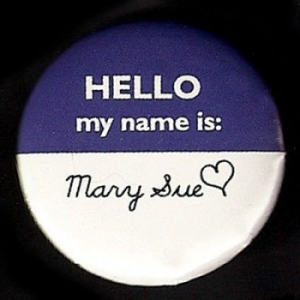This article is about trying to avoid waffling in your *Action* posts, and cut to the chase.
I’ve seen this a few times in Sci-fi PBEMs, especially Star Trek ones, but of course it could exist in any. GM’s write an *Action* post which is really heavy with dialogue from the Captain. Maybe the Captain is talking with his First Officer, or with an Admiral, or a diplomat from an alien colony.
What happens is that the entire post sets up the scenario where other players can get involved. So for example the Captain could argue with his First Officer and make a bad choice that leads the crew into a dangerous situation, or with the Admiral he is ordered to take his ship and check out some unexplained phenomenon, or talks with the alien diplomat break down and they end up attacking the spaceship.
All these scenarios are very common in an *Action* post. Now you might be looking at the title of this post and wondering what I’m getting to. You might be thinking that I’m being overly harsh on posts that have too much dialogue with the Captain, and I’m about to say that he’s not important, and that only the players are important.

You could write a convoluted reason for why Captain Picard is in a bad mood to explain why he gives an irrational order, but this is a lot of reading for your players. Be concise in your *Action* post and focus on what your players need to know. Explain in a separate post all about the Captain's feelings
What I’m saying isn’t that. Also I’m not saying that giving too much explanation is a bad thing either. It is actually very sensible and worthwhile to show the reasons behind why things happen in your game. Without this, the story could be too rushed, and you end up starting a story with no explanation of why anything is happening, only that it DOES. Your players might start to disrespect you for not following the laws of common sense, or start to follow your lead of not bothering to write an interesting story. If you don’t, why should they?
So what I am saying is that you shouldn’t get too carried away when creating your *Action* posts. The Captain is the leader of your crew, and therefore he is a great driving force for your story. But, it’s very easy to get carried away when using him to go into a lot of unnecessary dialogue, with the idea of setting up a story which isn’t that complicated.
For example if the Captain is talking to the First Officer, he might invite the First officer into his office, sit down, offer a tea or coffee, have a little chat about life and “how’s the kids/wife/cat?” before getting to the important bit that sets up the story. If the Captain is talking to the Admiral, he might be friendly at first, then get awkward when the Admiral starts telling him what to do, and argues back unnecessarily. If talking to the alien diplomat this conversation could go on for ages talking about their political situation, racism, the alien’s right to defend themselves, etc before getting to the important bit of the story. You don’t have to show every single little decision that the Captain makes.
Read More

 George Lucas has created a diverse fantasy world with spaceships and limitless types of aliens. It is popularly extended through many films, books and games. Creating a new scenario within this world would be easy, and because if it’s popularity you will have a large audience who are already familiar with the world.
George Lucas has created a diverse fantasy world with spaceships and limitless types of aliens. It is popularly extended through many films, books and games. Creating a new scenario within this world would be easy, and because if it’s popularity you will have a large audience who are already familiar with the world. This is a rich science fiction universe described in all of the Star Trek series’. Each spinoff series has focussed on exploration so there are many locations already described, and it is not too hard to invent many more for new adventures.
This is a rich science fiction universe described in all of the Star Trek series’. Each spinoff series has focussed on exploration so there are many locations already described, and it is not too hard to invent many more for new adventures.





